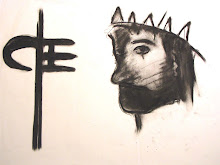The Polish thinker Leszek Kolakowski is the author of "Husserl and the Search for Certitude" (1975) and "Metaphysical Horror' (1988) and "Modernity on Endless Trial" (1990) and "My Correct Views on Everything" (2005).
Kolakowski died in 2009. He was a Marxist and
an anti-Marxist; a positivist and an anti-positivist; a student of Kant,
Husserl, Heidegger, Wittgenstein - also a critic of all of them - storyteller,
treedom fighter, scholar. And: amazingly, he had a sense of humor. Here are a few of his key ideas, which speak to me in the present crises we are facing.
"A modern philosopher who has never once suspected himself ot being a charlatan must be a shallow mind and comeone whose work is probably not worth reading."
"Philosophy, once it appears, can never be done away with, no matter how often or how vociferously its futility is denounced."
"If existence were pointless and the universe were devoid of meaning, we would never have achieved the ability to imagine otherwise - or even to entertain the very thought that existence is pointless and that the universe is devoid of meaning."
"Among all modern thinkers, it is Karl Jaspers perhaps who deserves the highest praise, especially for his efforts at resisting so many things - he faced the demise of the Absolute; he resisted the temptation to make the self a god; he never fell into any cheap scientistic interpretation; he refused to accept mere empiricism, and held out for the importance of something beyond us that can never quite find its way into words; he took his Hippocratic oath seriously and tried to heal both himself and all the rest of us; and he kept returning to the idea that the search is what makes us human."
"It is impossible to grasp what is at stake in philosophy without diving into the problem of the criterion and honestly facing the questions that emerge from it."
"The cultural role of philosophy is not to deliver truth but to build the spirit of truth. And this means: never to let the inquisitive energy of mind go to sleep, never to stop questioning what appears to be obvious and definitive, always to defy the seemingly intact resources of common sense, always to suspect that there might be "another side" in what we take for granted, and never to allow us to forget that there are questions that lie beyond the legitimate horizon of science but are nonetheless crucially important to the survival of humanity as we know it."
"All the most traditional worries of philosophers - how to tell good from evil, true from false, real from unreal, being from nothingness, just from uniust, necessary from contingent, myself from others, man from animal, mind from body, or how to find order in chaos. providence in absurdity, timelessness in time, laws in facts, God in the world, world in language - all of them boil down to the quest for meaning; and they presuppose that in dissecting such questions, we may employ the instruments of Reason, even if the ultimate outcome is the dismissal of Reason or its defeat."
"We can escape the contradictions that emerge in our philosophical researches only by trying to place ourselves outside philosophy, to suspend our interest in the issues and to climb up to a vantage point from which philosophy itself appears as a part of the history of civilization. The trouble is, however, that to reach this point we almost certainly need philosophy - we need premises and conceptual instruments and much else that has been elaborated in the ambiguous realm of philosophy."
A quote from the Hungarian teacher and critic George Gamori about Kolakowski:
"This is the gist of his message: you cannot love both truth and authority. You have to choose, without dogmas, and oftentimes you must rethink things. This is a philosophy for real people - for adults."


No comments:
Post a Comment